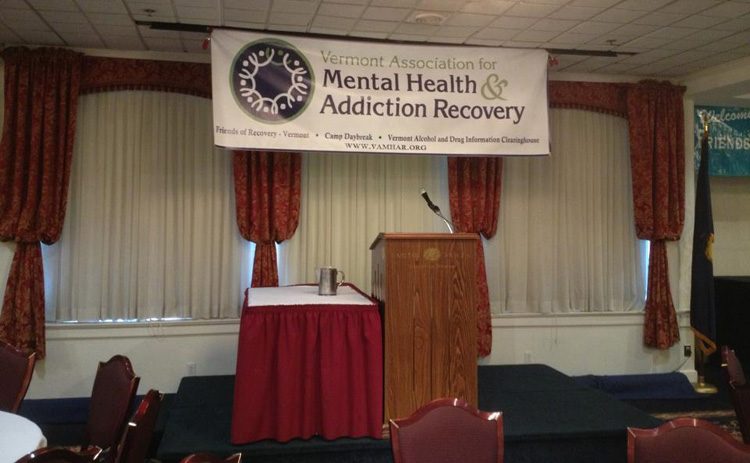Peter Espenshade had every intention of continuing the 16 year relationship the Vermont Council on Problem Gambling had with the Vermont Lottery Commission until deciding earlier this year against it.
Since 1998 there existed a financial partnership to help those Vermont residents whose gambling had become an addiction, until in 2014 Espenshade’s organization, the Vermont Association for Mental Health and Addiction Recovery, took the reins of the problem-gambling council and decided against applying for the yearly $150,000 grant provided by the lottery to help those in need of problem-gambling services.
Espenshade said he didn’t like the direction the lottery was going, and objected to 25 bars in some of Vermont’s lowest income neighborhoods being installed with touch-screen lottery game counsels last fall, a first for establishments that sold liquor. That objection, among others, fueled his suggestion that the lottery’s longtime slogan, “play responsibly,” was no longer urged by the lottery’s marketing. According to Espenshade, too much of a conflict of interest existed for his organization’s work to be overseen by the state’s only purveyor of gambling. Instead, this winter he will ask lawmakers to “consider a direct gift of $75,000 to our organization each year, so we can repair the damage the lottery causes and try to return the lottery to something responsible,” according to Seven Days.
Until this year, the Vermont Department of Health has always awarded the problem-gambling grant, and it’s always been awarded to the Vermont Council on Problem Gambling since the lottery’s voluntarily adoption of promotional rules stipulating that no suggestion be given that financial problems could be solved by gambling. In fiscal year 2014, lottery sales totaled $102 million, $75 million of which came from instant tickets. Last year’s profits were $22.6 million and of that less than1 percent, or $150,000, is what is mandated by the legislature to address problem gambling, the rest going to the state’s education fund.
After the decision last spring by the Vermont Council on Problem Gambling not to pursue the grant, Gregory Smith, the executive director of the Vermont Lottery since 2012, found psychologist Richard Barnett of Stowe who was willing to take on the endeavor and the nonprofit Center for Addiction Recognition, Treatment, Education and Recovery was formed. To date its only employees are an executive director and Barnett.
Despite his relationship with the Vermont Lottery ending Espenshade isn’t going anywhere and plans to continue his work through the Vermont Association for Mental Health and Addiction Recovery to offer competing training options to clinicians using $16,000 funded by private grants.



